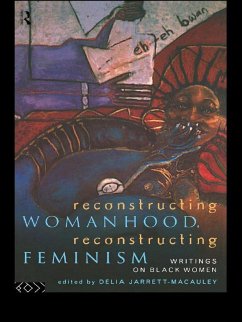
Watching Police, Watching Communities (eBook, ePUB)
Versandkostenfrei!
Sofort per Download lieferbar
37,95 €
inkl. MwSt.
Weitere Ausgaben:

PAYBACK Punkte
19 °P sammeln!
From the early 80s community policing has been held up as a new commitment to the ideals of service and the rejection of coercive policing styles. The idea was to encourage a partnership between the public and police in which community needs would be met by officers on local beats. Today, Government ministers and senior police officers depict Neighbourhood Watch, the centrepiece of the scheme, as a great success. However, Watching Police, Watching Communities reveals that most schemes are dormant or dead. The authors trace the causes of scheme failure to the lack of commitment to community pol...
From the early 80s community policing has been held up as a new commitment to the ideals of service and the rejection of coercive policing styles. The idea was to encourage a partnership between the public and police in which community needs would be met by officers on local beats.
Today, Government ministers and senior police officers depict Neighbourhood Watch, the centrepiece of the scheme, as a great success. However, Watching Police, Watching Communities reveals that most schemes are dormant or dead. The authors trace the causes of scheme failure to the lack of commitment to community policing by police forces. Most importantly, they find a police rank-and-file culture which celebrates aggression, machismo and the assertion of authority especially against areas occupied by ethnic minorities and other disadvantaged groups.
Today, Government ministers and senior police officers depict Neighbourhood Watch, the centrepiece of the scheme, as a great success. However, Watching Police, Watching Communities reveals that most schemes are dormant or dead. The authors trace the causes of scheme failure to the lack of commitment to community policing by police forces. Most importantly, they find a police rank-and-file culture which celebrates aggression, machismo and the assertion of authority especially against areas occupied by ethnic minorities and other disadvantaged groups.
Dieser Download kann aus rechtlichen Gründen nur mit Rechnungsadresse in A, B, BG, CY, CZ, D, DK, EW, E, FIN, F, GR, HR, H, IRL, I, LT, L, LR, M, NL, PL, P, R, S, SLO, SK ausgeliefert werden.













